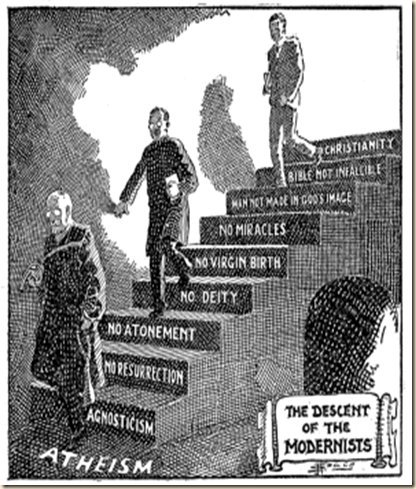H. L. Mencken remarked that Calvinism was in his “cabinet of horrors” but little removed from cannibalism. If you are alphabetizing horrors and putting them on a shelf in alphabetical order, Mencken’s observation makes sense. What he did not mention is that alphabetizing items that scare means that Catholicism would also near cannibalism in Mencken’s cabinet. And here the connections are greater than mere spacial proximity. Roman Catholics regularly need to answer the charge that if the bread and wine in the Mass become the actual body and blood of Jesus, then aren’t participants engaging in cannibalism?
Here’s one response:
The brilliant medieval theologian Thomas Aquinas examined the philosophical issues and conundrums elicited by the belief in transubstantiation. Most interestingly, Aquinas addressed the confession of an earlier theologian, Berengarius of Tours, who was forced to assert that Christ’s bones were truly crushed by teeth when laypeople received the consecrated host during Holy Communion. To this very literal interpretation, Aquinas responded that “Christ’s very body is not broken” but only “under the sacramental species.”
In other words, Christ’s presence is real and bodily, but this real and bodily presence is not to be understood as the same as Christ’s real and bodily presence as a historical being like you and me. Under the species of bread and wine, as Paul VI made clear, Christ “is present whole and entire in His physical ‘reality,’ corporeally present, although not in the manner in which bodies are in a place.” We Catholics aren’t cannibals – not exactly, anyway.
Since a bloodstained Eucharistic host would presumably be quite easy to fake, it’s more common to see the Catholic Church distance itself from such claims, rather than naively endorse them. But there is something about Christ’s real, bodily presence that Catholics see as particularly comforting in an age such as ours: Jesus might be hidden, but he is present among us nonetheless.
So Roman Catholics are not literal about Christ’s presence. It is not the actual body of the ascended Christ that is present in the Mass. It is a spiritual presence with some physical aspects.
Another author answered the question this way:
Many people miss the mark with regard to the faith because they make the mistake of applying terms in a human way to God who is infinite. We could speak of Mormons who claim God, the Father, has a physical body because the Scriptures speak of God’s “back parts,” in Exodus, or “the hand of Lord,” the “eyes of the Lord,” etc. You’ve probably heard the classic rejoinder to these Mormon claims: “Psalm 91 refers to God’s ‘feathers and wings’. Does this mean God is some sort of bird?”
The error here, of course, is rooted in interpreting texts that were not intended to be used in a strict, literal sense, as if they were. “Back parts” have to mean “back parts,” right?…
When it gets down to brass tacks, the nay-sayers who reject the Eucharist, and most specifically, those who accuse us Catholics of cannibalism because we say we “consume” the Lord in the Eucharist, body, blood, soul, and divinity, fail to understand what we actually mean by consuming the Lord. They end up objecting just as the unbelieving “Jews” of John 6:52, who said, “How can this man give us his flesh to eat?”
If you are thinking about a cannibalistic blood-meal, he can’t. But if you understand, as Jesus said, “It is the Spirit that gives life, the flesh is of no avail, the words I have spoken to you are Spirit and life,” then you understand. The Eucharist represents a miracle confected by the power of the Holy Spirit.
Christ’s presence in the Supper is essentially spiritual. Again, it is not the literal body and blood. That would be cannibalism. Instead, it is a spiritual body and blood.
How exactly is that different from Reformed Protestants who claim the real presence of Christ in the Supper?
Q. 96. What is the Lord’s supper?
A. The Lord’s supper is a sacrament, wherein, by giving and receiving bread and wine according to Christ’s appointment, his death is showed forth; and the worthy receivers are, not after a corporal and carnal manner, but by faith, made partakers of his body and blood, with all his benefits, to their spiritual nourishment and growth in grace.






